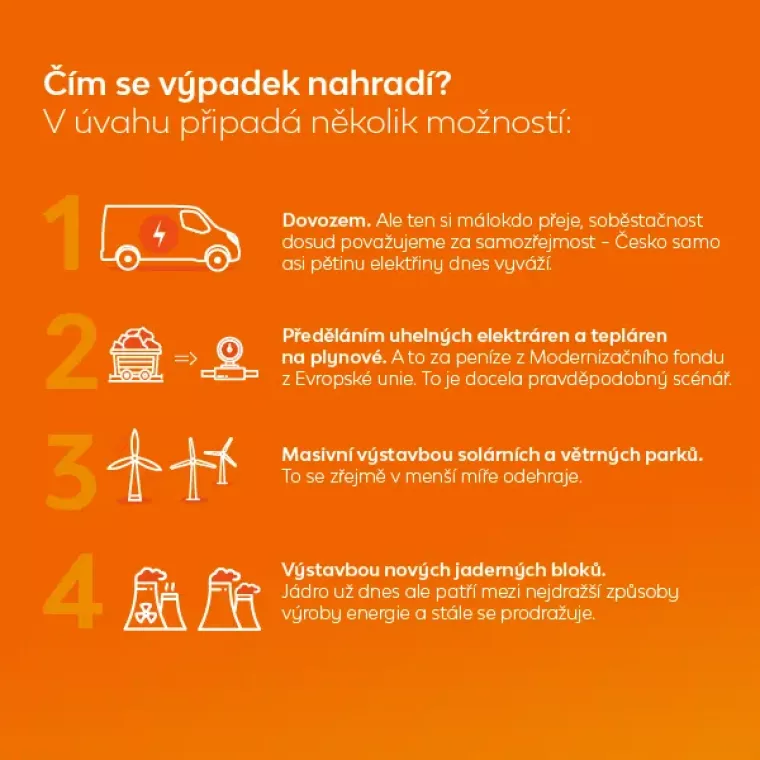
The energy industry in our country is about to undergo a green revolution. If the government votes to end coal-based power plants in 2033, and so far all the signs indicate that they will, we will have to produce half our electricity from other sources. And nobody knows exactly where yet. But nearly 10 gigawatts of coal-generated power will simply disappear. While environmentalists are rejoicing, energy experts are far from excited.
It will literally be a "big leap". It has already happened elsewhere, for example in Denmark or Spain, but these are countries with windswept coastlines or sun-drenched plains, so the elimination of coal has been replaced by wind farms and solar farms. Our country does not offer so much in this respect. On the other hand, the 'big leap' would probably have to take place anyway even without the government’s decision.
We will be forced to move away from coal by the price of emission allowances, which could double by the end of the decade, i.e. rise to about 70-80 Euro. Under such economic conditions, coal miners would start closing their plants by themselves, as it happened, for example, after the introduction of the carbon tax in the United Kingdom.
Coal was supposed to be mined in our country for a very long time, the government's change of course may not be a matter of some ecological awakening, but rather a realization that it will ultimately make more sense economically to shut down traditional coal-based power plants sooner, essentially in about ten years.
LeasePlan is also preparing for the big leap. Our offer of electric vehicles and hybrids is growing steadily. An electric vehicle for operational leasing will soon become the most economical and sustainable option for a company car.
No longer a dirty country
But there will also be considerable advantages. Until now, the Czech Republic has been one of the "dirtiest" countries in Europe, both in terms of CO2 emissions and ash. The Saxony-Mostecko-Silesia triangle produces up to half of all European emissions. With an average carbon intensity of 400 grams of CO2 per kilowatt hour of electricity produced, we rank fourth in the EU (behind Poland, Estonia and Cyprus).
Coal plants employ 50.000 people
Should we look forward to the transition to coal-free energy? It may not be good news for the 50,000 families that depend directly or indirectly on coal mining and coal power plants. Our three coal basins will lose about 40 billion CZK in 2033. But our carbon intensity will fall by about half. And cities like Ostrava, Havířov, Karviná and Třinec will probably no longer be among the 100 dirtiest cities in Europe.
After the coal power plants of Prunéřov, Tušimice, Počerady, Ledvice and others shut down, the rest of the country will feel it too. The power industry will lose almost exactly half of its current output. And it's not just electricity. Coal provides heat for two million families living mainly in prefabricated flats.



